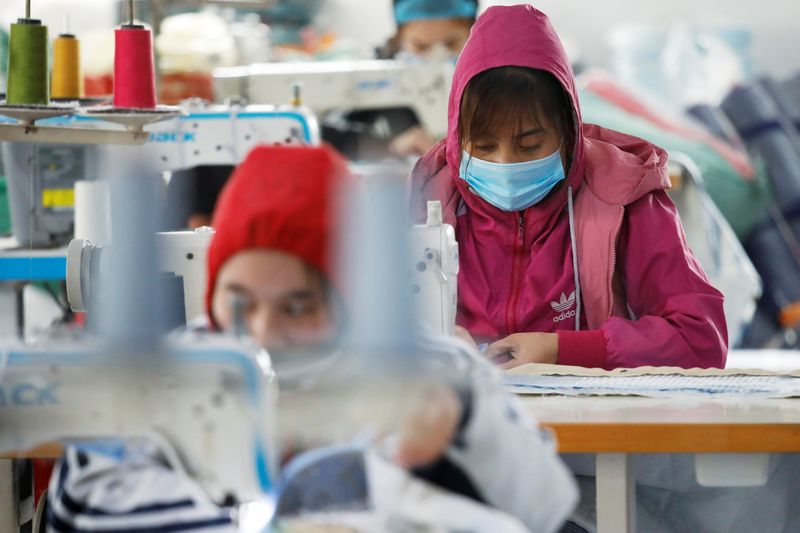Vietnam seeking to fix labour shortage soon - PM
Reuters
Published Nov 12, 2021 12:40AM ET
Updated Nov 12, 2021 01:21AM ET

HANOI (Reuters) - Vietnam's government is aiming to fix a coronavirus-induced labour shortage by end of this year or early in 2022, its prime minister said on Friday, as it seeks to revive its economy after the steepest quarterly contraction on record.
Businesses are struggling to restore full operations in Vietnam due to a labour shortage in the wake of the mass exodus of hundreds of thousands of workers from industrial hubs in October when COVID-19 curbs were lifted.
"The fourth wave of COVID-19 infections have seriously affected the labour market, with a high unemployment rate," Pham Minh Chinh told lawmakers.
Chinh said the departure en masse of labourers from industrial hubs to their home towns when travel curbs were removed has posed problems for businesses and complicated virus containment efforts.
This week, Taiwan's Pou Chen Corp, the world's largest manufacturer of branded sports footwear said about 6% of its Ho Chi Minh City staff had quit and it was facing manufacturing disruption.
Vietnam is a major garment maker, supplying brands that include Zara, Ralph Lauren (NYSE:RL), North Face, Lacoste and Nike (NYSE:NKE). It is also a production centre for electronics firms such as Samsung (KS:005930).
"Local authorities will cooperate with businesses and labourers to work out all necessary measures to ensure sufficient labourer supplies by the end of this year or early next year," Chinh said.
Authorities will offer financial support for labourers' travel and accommodation and press ahead with vaccinations.
Chinh said the government was seeking to restore supply chains and increase public investment to spur growth.

"Public investment has not met target," Chinh said. "The government has determined that speeding up public investment will be a key task to restore economic growth."
Earlier Friday, the investment minister said a raising of the public debt ceiling from the current level of 60% of gross domestic product was being considered to boost the economy, which contracted 6.17% in the third quarter.
Written By: Reuters
Trading in financial instruments and/or cryptocurrencies involves high risks including the risk of losing some, or all, of your investment amount, and may not be suitable for all investors. Prices of cryptocurrencies are extremely volatile and may be affected by external factors such as financial, regulatory or political events. Trading on margin increases the financial risks.
Before deciding to trade in financial instrument or cryptocurrencies you should be fully informed of the risks and costs associated with trading the financial markets, carefully consider your investment objectives, level of experience, and risk appetite, and seek professional advice where needed.
Fusion Media would like to remind you that the data contained in this website is not necessarily real-time nor accurate. The data and prices on the website are not necessarily provided by any market or exchange, but may be provided by market makers, and so prices may not be accurate and may differ from the actual price at any given market, meaning prices are indicative and not appropriate for trading purposes. Fusion Media and any provider of the data contained in this website will not accept liability for any loss or damage as a result of your trading, or your reliance on the information contained within this website.
It is prohibited to use, store, reproduce, display, modify, transmit or distribute the data contained in this website without the explicit prior written permission of Fusion Media and/or the data provider. All intellectual property rights are reserved by the providers and/or the exchange providing the data contained in this website.
Fusion Media may be compensated by the advertisers that appear on the website, based on your interaction with the advertisements or advertisers.